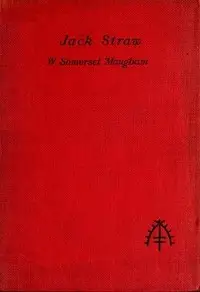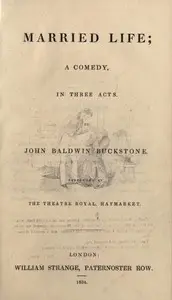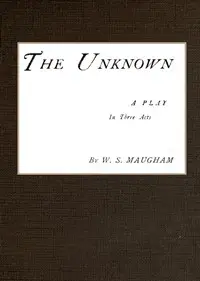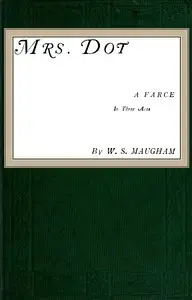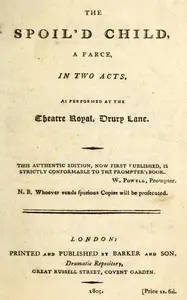"Penelope: A Comedy in Three Acts" by W. Somerset Maugham is a play set in the early 1900s, centered around Penelope, a young wife on the verge of seeking a divorce after discovering her husband's unfaithfulness. The play humorously examines themes of love and loyalty through Penelope's relationships with her family and friends. The story kicks off in Dr. O’Farrell’s drawing-room, with Penelope’s family and friends stirring with confusion over telegrams she sent, creating rumors of a scandal with a royal guest, the Archduchess Anastasia. However, Penelope interrupts the gossip, disclosing her real intention: she wants to divorce her husband due to his affair. This revelation not only sets the comedic tone but also reveals the web of relationships between Penelope and her inner circle as she tackles her emotional crisis.

Penelope: A Comedy in Three Acts
By W. Somerset (William Somerset) Maugham
When a betrayed wife gathers her friends and family, shocking secrets and comedic chaos ensue, threatening to upend everything they thought they knew about love and fidelity.
Summary
About the AuthorWilliam Somerset Maugham was an English writer, known for his plays, novels and short stories. Born in Paris, where he spent his first ten years, Maugham was schooled in England and went to a German university. He became a medical student in London and qualified as a physician in 1897. He never practised medicine, and became a full-time writer. His first novel, Liza of Lambeth (1897), a study of life in the slums, attracted attention, but it was as a playwright that he first achieved national celebrity. By 1908 he had four plays running at once in the West End of London. He wrote his 32nd and last play in 1933, after which he abandoned the theatre and concentrated on novels and short stories.
William Somerset Maugham was an English writer, known for his plays, novels and short stories. Born in Paris, where he spent his first ten years, Maugham was schooled in England and went to a German university. He became a medical student in London and qualified as a physician in 1897. He never practised medicine, and became a full-time writer. His first novel, Liza of Lambeth (1897), a study of life in the slums, attracted attention, but it was as a playwright that he first achieved national celebrity. By 1908 he had four plays running at once in the West End of London. He wrote his 32nd and last play in 1933, after which he abandoned the theatre and concentrated on novels and short stories.



